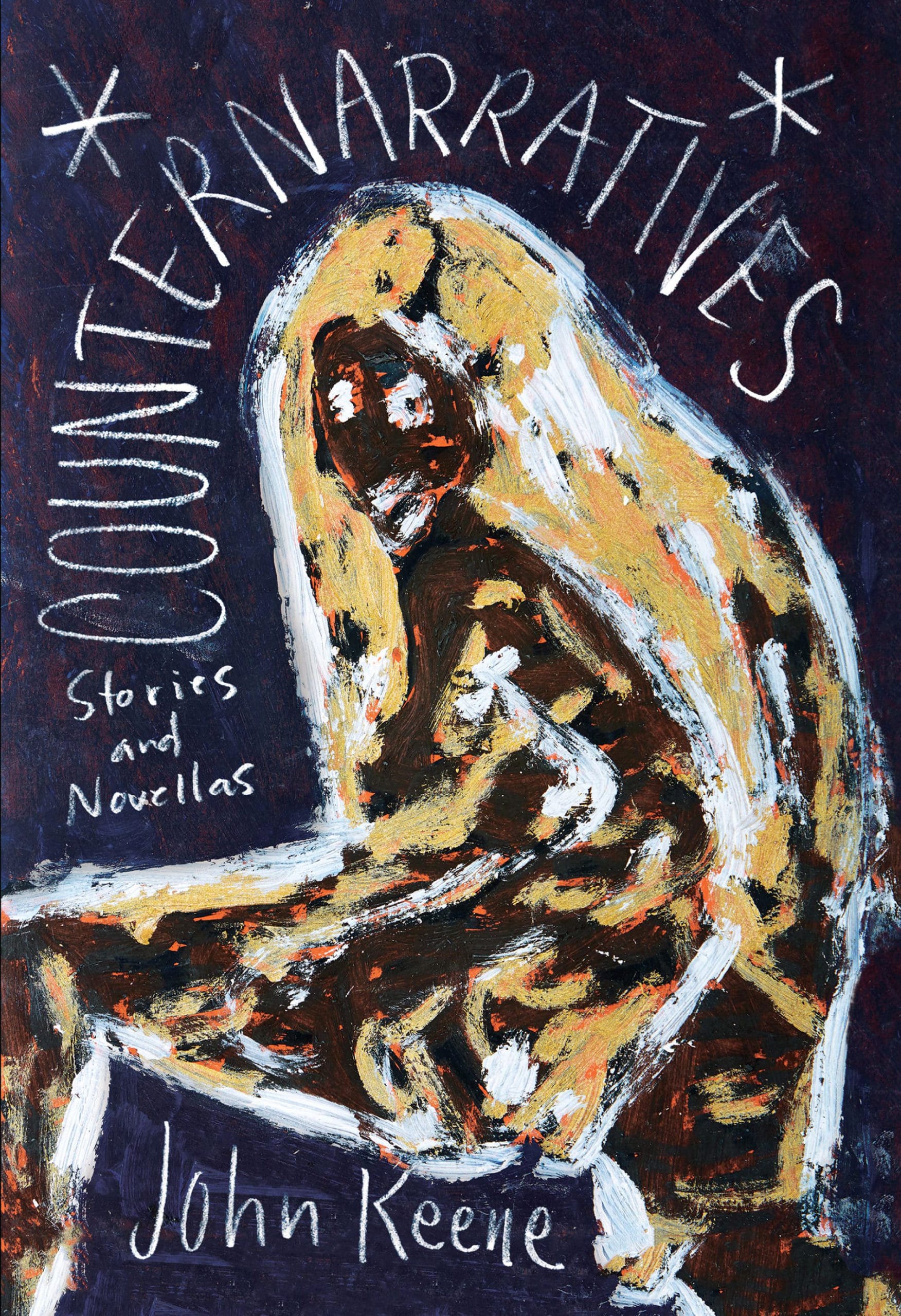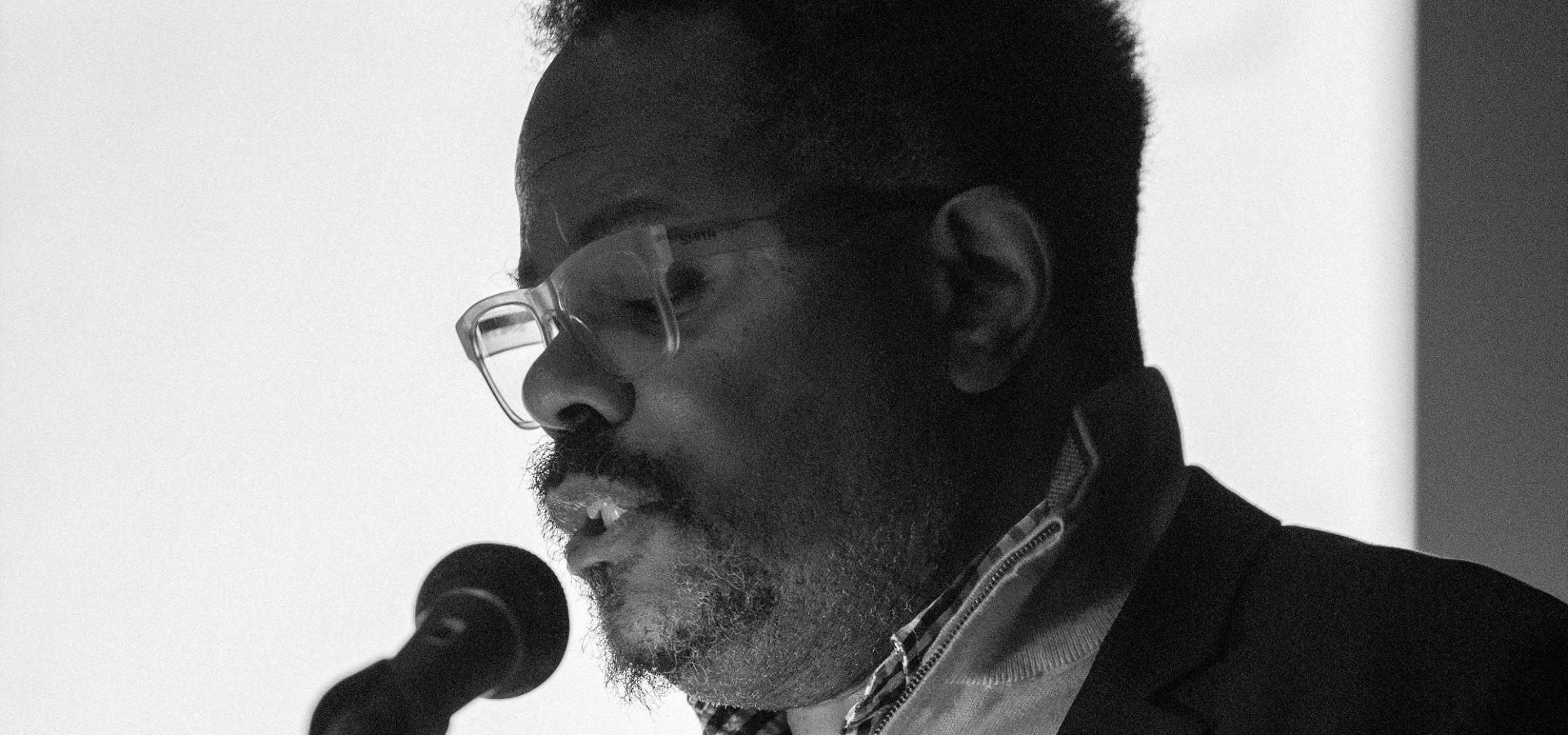
Writer in Residence John Keene
Distinguished author, poet, and educator John Keene was the 2020 Katie Jacobson Writer in Residence at CalArts. His talk “Notes on Style” was delivered in January to an appreciative audience of students and faculty in the School of Critical Studies and attendees of the Finance Fictions conference hosted by the Aesthetics and Politics Master’s program.
The erudite Keene addressed many factors contributing to a writer’s achievement of a singular voice. “The touchstone of writing is emotion,” he said. Keene also spoke of the “ethics of style,” of the importance of “truthfulness of representation,” and of “style as lyric prose.” Citing Flaubert’s Madame Bovary as an example, Keene suggested that a writer’s style can reveal a relationship to privilege; that throughout Flaubert’s work, the writer “constantly showed the meretriciousness of the times he lived in.” And, that Flaubert “anticipated our own time— postmodernism as a lived reality—not just as a literary or artistic construct.” Keene said that he believes “people are starved for stories in which characters like themselves appear,” telling the readers’ own stories through them.
A slideshow of differing manuscript pages produced by a wide range of writers illustrated Keene’s talk. Referring to those pages in the Q&A session, Keene reminded the audience that the word “style” refers to the stylus, and that a writer’s tools are important to the content produced with them. He spoke of how writing in longhand is still practiced by some writers because “it slows the process down,” and how Friedrich Nietzsche, the first known writer to use a typewriter, was aided by the speed it enabled. Keene closed by acknowledging that “images have taken primacy over written text” and that “technology is shaping writers’ genres, forms, and styles.”
“People are starved for stories in which characters like themselves appear.”







